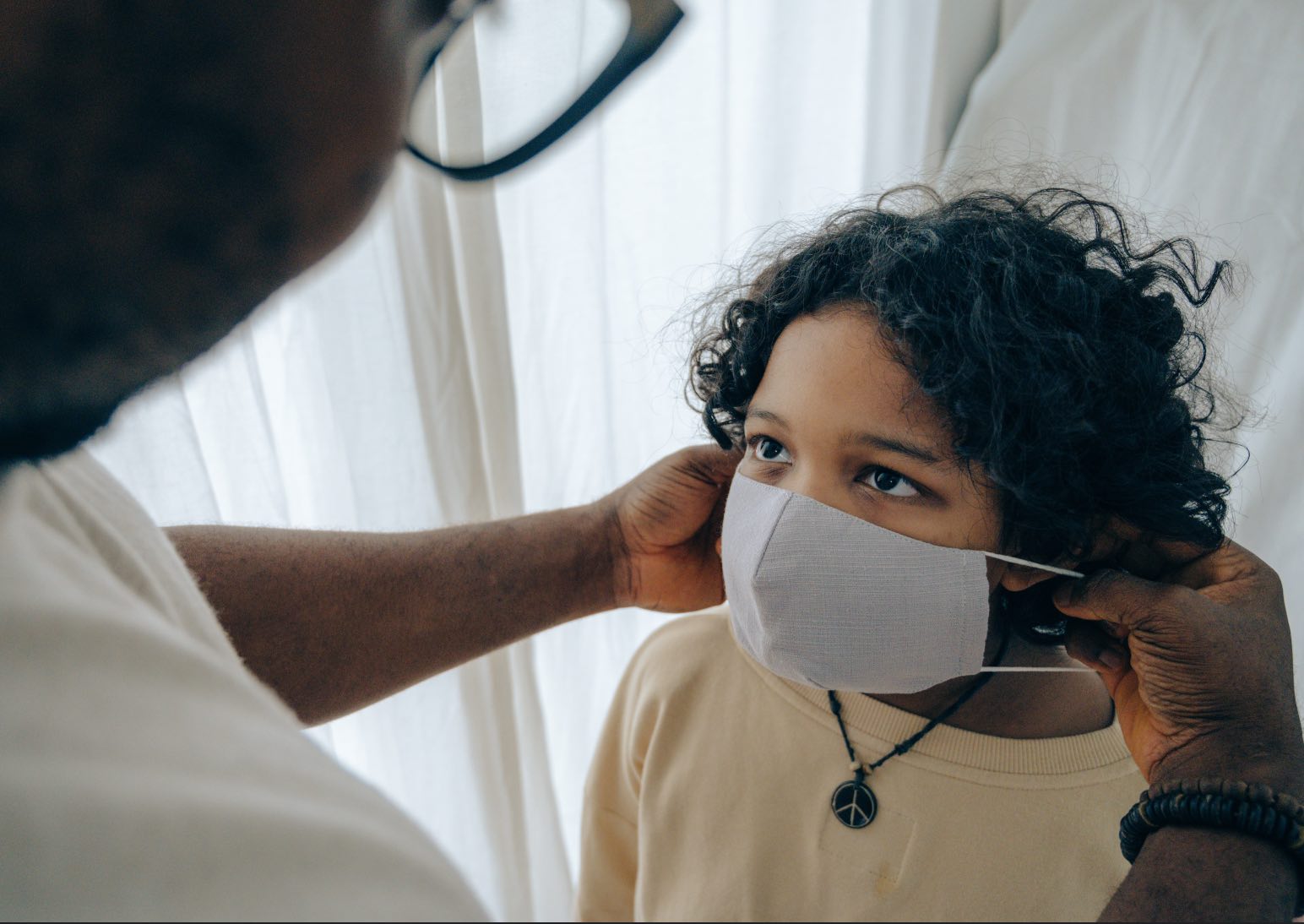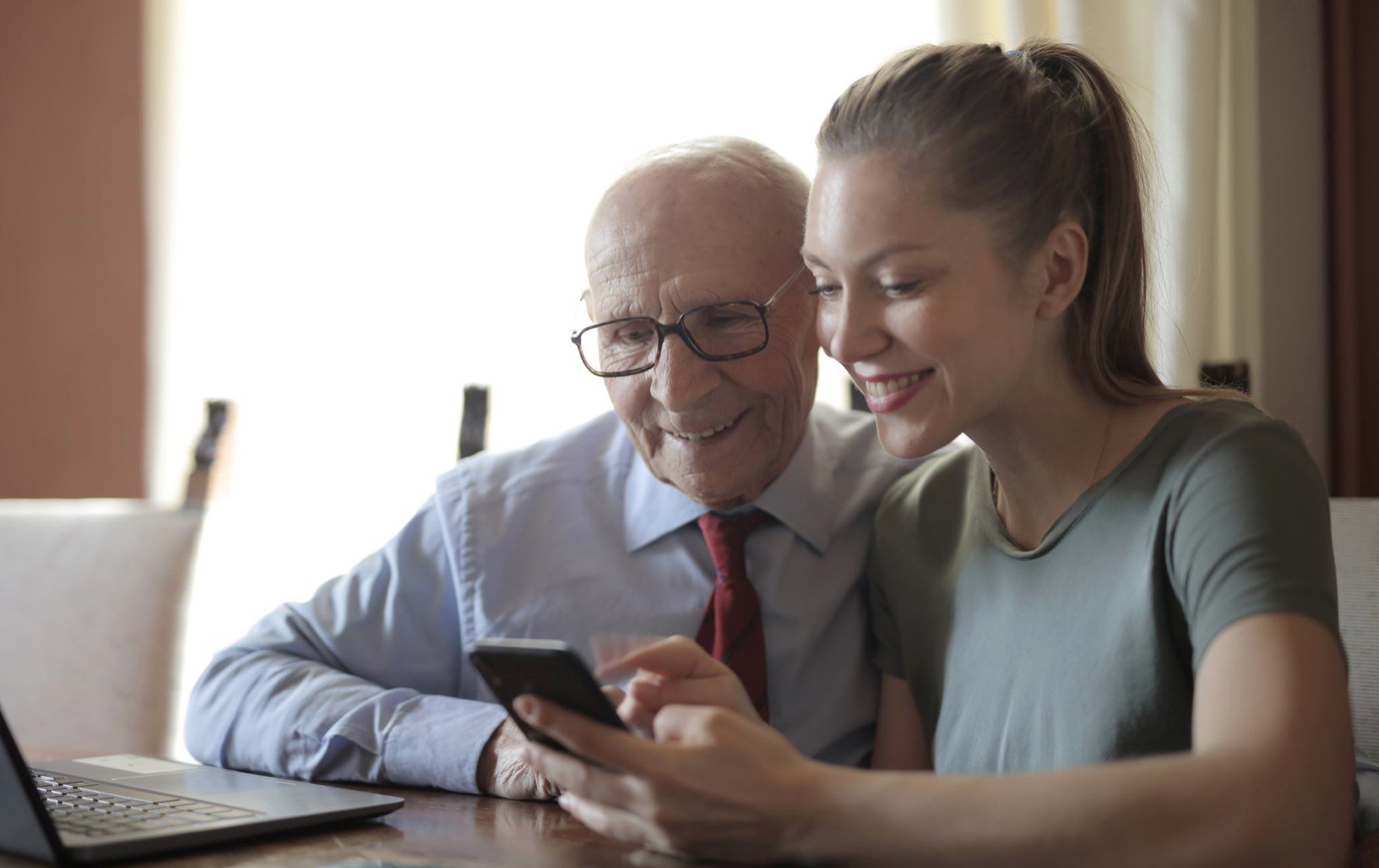
It has been several months, and COVID-19 still rampages throughout the U.S. Hospitalizations and deaths continue to climb even as many regions look to reopen. The only thing that’s clear at this point is that the pandemic is not over.
Even with the new vaccines, at this point, it’s not even clear when it will end.
This state of affairs represents a unique challenge for caregivers. Whether due to age or illness, the people under your care are uniquely vulnerable to the coronavirus. It is your job to not only guard them against infection as best you can, but also to establish a caregiving routine that helps your patient cope with the anxiety and isolation that go hand-in-hand with the pandemic.
But how do you do that, exactly?
First, Take Care of Yourself
For many, the novel coronavirus is not the only danger they face. The stress and uncertainty created by the pandemic are exhausting on every level, and as such have the potential to be extremely damaging to your overall mental health. In some cases, prolonged stress can even be damaging to your physical health.
Moreover, lockdown and social distancing measures mean less exercise, less social interaction, and generally, less of everything people do to stay healthy.
COVID-19 isn’t just creating physical health problems – it’s creating significant mental health fallout as well. It’s important, first and foremost, that you acknowledge this. Understand the impact the pandemic is having on you, and take the necessary measures to care for yourself.
The reality of being a caregiver is that you cannot care for another person unless you are taking proper care of yourself. If your own mental and physical health is failing, your patient’s care will suffer. Not only are you likely to make mistakes, but you simply won’t have the energy to put as much into their care as necessary.

How to Keep Yourself Afloat During This Difficult Time
Tips from the World Health Organization
- Stick to a set routine. Get up at the same time every morning, and go to bed at the same time every night. Eat meals at roughly the same time each day.
- Maintain your personal hygiene. Don’t just do the bare minimum. Shower, brush your teeth and engage in whatever personal grooming you ordinarily would if there were no pandemic.
- Eat well. Avoid ordering too much fast food, and stay away from junk food where possible.
- Exercise. This can be challenging, but it’s possible. You might consider doing squats, jumping jacks, push-ups, or situps. Whatever gets the blood flowing.
- Take breaks. Avoid spending too much time on social media. Unplug from your work and the news, and give yourself an opportunity to recharge.
- Be wary of bad habits. It can be tempting to turn to drugs and alcohol in your downtime. But it won’t help, and it will make you less able to act in any capacity as a caregiver.
- If you are yourself suffering from a mental illness, consider looking into online therapy. Many therapists now offer video conferencing sessions, which could be just the thing to help you pull through.
- Find a hobby or passion to focus on. Something satisfying in which you can get lost.
- Seek social interaction where you can. This could be zoom calls with friends and family, online games, or movies.
Keep The Essentials Well-Stocked
Once you’ve taken care of yourself, the next step is to ensure that you stock up as much as possible. Make a list of everything you need to care for your patient or loved one, from shampoo and toilet paper to medical supplies. While I don’t encourage panic buying and preparing for several months of isolation, you should, at a minimum, at least have enough non-perishable food and hygiene products to last for two weeks to a month.
Ideally, you’ll want to get all your items delivered via a grocery service such as Instacart. If that’s not possible, you may need to brave the store. I’ll cover that under the next heading.

RELATED: How to Talk to Your Kids about the Pandemic
When a parent’s job is to protect and love their children, what’s the best way to answer all the questions your young ones may have about Co-vid 19 and the pandemic?
Disinfect Everything
Some level of contact with the outside world is unavoidable. Even if you don’t go out, you need to get groceries and supplies delivered on occasion. While the WHO notes that food and grocery delivery should be safe if the provider follows proper hygiene practices, it’s better to be safe than sorry when you’re caring for an immunocompromised patient.

Steps you should take when receiving deliveries:
Tips from the World Health Organization
- Request contactless delivery where possible. If this is infeasible, make sure to wear a mask when meeting with your delivery person.
- Wash your hands thoroughly after handling any delivered goods.
- You may also want to wipe down all non-organic surfaces, although the WHO says this is not strictly necessary.
Additional precautions when you go out:
-
Wear a mask. Make sure it fits snugly and covers both your mouth and nose.
-
Avoid touching your face. Consider carrying disinfectant wipes with you for when you have to touch public surfaces such as shopping carts, elevator buttons, or door handles.
-
When you get home, wash your hands thoroughly. Throw out your mask if it’s disposable, or put it in the laundry if it’s not. You might even consider changing clothes, as well.
Focus on Your Patient’s Mental Wellness
Generally speaking, you should care for your patient’s physical needs during the coronavirus pandemic in the same way as you did beforehand. This may mean bathing them two to three times a week, moving them to prevent bedsores, changing their clothes and bedding regularly, washing their hair once to twice a week, and providing them with exercise routines to help them stave off weight gain.
If you don’t already have an established, set physical care routine, talk to your patient to figure out a schedule that’s most convenient for them, but understand that their needs aren’t always going to fit a schedule.
Beyond that, you will want to implement additional measures to help safeguard your patient’s mental and emotional well-being. They’re likely just as stressed as you are, especially if they’ve transitioned from a care center to your home. And if they aren’t entirely bedridden, the fact that they cannot go outside may be extremely troubling to them.
The good news is that many of the same tactics you’ve used for psychological self-care can be applied to your patient.

Helping Your Patient Through Difficult Times
- Help them find something to engage their brain. Some sort of mental pursuit that staves off boredom. This could be a creative hobby, brain games, or even video games.
- Make sure there is natural lighting and proper airflow in the patient’s room. This can prevent it from getting too musty or depressing.
- Clean the room both regularly and whenever you notice a mess, paying close attention to contaminants like dust and debris from food.
- Use technology to keep your patient connected to friends and loved ones.
- Talk to your patient. Spend time with them not just as a caregiver, but as a friend.
- Give them as much ownership and self-determination as you can. This might be as simple as leaving a brush by their bed so they can keep their hair untangled.
Keep Your Eyes Forward. It Will Get Better
As a caregiver, you face a unique set of challenges where the coronavirus pandemic is concerned. But you’re more than capable of rising to them. Keep your chin up and know that eventually, things will get better.

By Aaron Goldsmith
Aaron Goldsmith is the owner of Transfer Master. Transfer Master has built electric adjustable hospital beds for the home and medical facility since 1993. He started with a simple goal that hospital beds should allow wheelchair users to transfer independently in and out of bed. 25 years later, their customers are still at the center of everything they do.

RELATED:
Dear Quarantine, You came into my lifelike a lightening bolt
Dear Quarantine,
You came into my life like a lightning bolt.
I didn’t know much about you before March, and yet you have been one of my greatest teachers so far this year…
Connect With Us on Social Media!
RECENT FAVES
Tips for Hitting the Road with Your Furry Friends
Part 1 of Kathlene McGovern’s 2 part series on the best and safest ways to travel with your furry friends!
I’m Just Curious
Dove Rose give us ideas on how to stay curious! Keep it Fresh in the Kitchen, on the Drive and in your Life. New ideas to keep our mind alive!
Living Unhoused for a Week: Ken Craft Takes to the Streets
Ken Craft of Hope of the Valley lives unhoused on the streets of the San Fernando Valley for 100 hours and shares the challenges, insights and struggles he faced on this journey.



